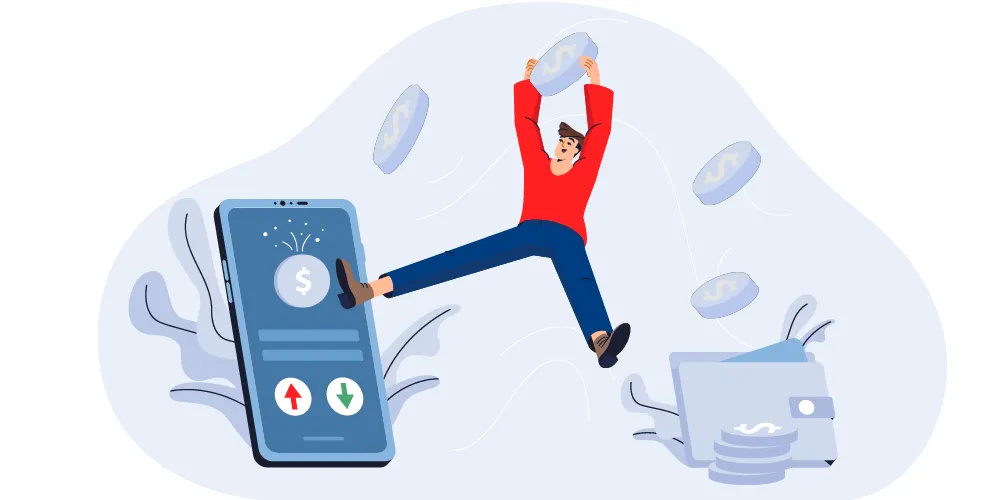Clear goals, regular recognition, and transparent incentive structures drive consistent motivation. Combining monetary rewards with non-monetary perks, such as career growth opportunities, leaderboards, and team celebrations, creates a balanced system. Frequent feedback and real-time performance tracking also help keep sales teams aligned, competitive, and engaged.
Effective Strategies to Motivate Your Sales Team
- Achala Rasal
- Mar 16, 2025
- 4 min read
- Last updated on Apr 25, 2025
Introduction
In the high-stakes world of sales, the drive and enthusiasm of a sales team can make or break an organization's success. To consistently achieve targets and scale business growth, it's imperative to motivate sales teams, ensuring they remain engaged and committed. Understanding and implementing the right motivational strategies can transform a good sales team into a great one.
Understanding the Importance of Motivation in Sales
Motivation in sales is not just a buzzword; it's a crucial component that drives performance. Studies show that motivated employees are 31% more productive, and within sales, this translates to higher revenue. When you motivate sales teams effectively, you're not just boosting performance metrics; you're enhancing the overall health of your business.
Identifying What Motivates Your Sales Team
Not all salespeople are motivated by the same things. To effectively motivate sales teams, it's essential to delve into what drives individuals. Some are motivated by tangible rewards, such as bonuses or commissions, while others seek recognition or opportunities for personal growth. Tools like surveys, one-on-one meetings, and performance analytics can help uncover these individual motivators.
Implementing Incentive Programs
Incentive programs are a direct way to motivate sales teams. By offering bonuses, commissions, or experiential rewards such as trips, companies can align individual goals with broader business objectives. The key is to craft these incentives so they are clear and achievable, ensuring they genuinely excite and engage the sales team.
Creating a Positive Sales Culture
A supportive and positive sales culture is a fertile ground for motivation. Foster an environment that encourages collaboration rather than competition. Regular team-building activities, open communication channels, and recognising team efforts can greatly enhance motivation levels. When sales agents feel valued and connected, their drive naturally aligns with company goals.
Offering Professional Development Opportunities
Investing in the professional development of sales teams is an investment in motivation. Providing access to workshops, training sessions, and mentorship programs not only improves skill sets but also boosts morale. Salespeople who see a clear path for growth and improvement are more likely to be engaged and driven.
Leveraging Technology for Motivation
Technology offers numerous avenues to motivate sales teams. With the rise of CRM tools and sales performance software, sales processes can become more streamlined and targeted. These technologies enable better goal setting, clearer communication, and immediate feedback, all of which are crucial for keeping a sales team motivated. Embrace a tech-savvy environment to foster motivation and efficiency.
Conclusion
Motivating a sales team requires a multifaceted approach that combines understanding individual motivators with strategic implementation of diverse techniques. By fostering a positive culture, offering incentives, leveraging technology, and providing growth opportunities, businesses can build a dynamic and successful sales team. It's time to assess your current strategies and boost your team's motivation to new heights.
Frequently Asked Questions
What are the most effective strategies to motivate sales teams consistently?
How can incentive programs be designed to motivate sales performance truly?
Effective incentive programs are aligned with business goals, tailored to individual roles, and structured to ensure fairness. Tiered rewards, timely payouts, and clear communication enhance motivation. Including both individual and team targets encourages collaboration while maintaining competition, resulting in sustained performance improvements across the sales organization.
Why do traditional bonuses sometimes fail to motivate sales reps long-term?
Traditional bonuses often lack transparency, timing, and relevance. Delayed or unclear payouts reduce impact. When reps don’t see a direct link between effort and reward, motivation drops. Long-term engagement requires dynamic, data-driven incentives that adapt to individual performance, market shifts, and evolving sales behaviors.
Can gamification help motivate sales teams more than standard rewards?
Yes, gamification adds an element of fun and urgency through points, leaderboards, and badges. It encourages healthy competition and instant feedback, which standard rewards often lack. When integrated with performance metrics, gamification can boost engagement, productivity, and motivation, especially among younger or digitally driven sales teams.





